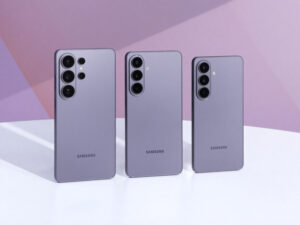It looks like the androids are having a merry dance today.
Amazon today finally opened their Android app store, providing users with yet another avenue to shop for Android apps. But what’s different this time round is Amazon’s business prowess, which can already be seen working its magic: Angry Birds Rio, the next iteration of the wildly successful game, will be exclusive to Amazon.
The app store already has 3,800 apps for selection. Unfortunately, it seems that only US residents can access it for now. Pointing my browser to amazom.com/appstore just redirects me back to the Amazon home page.
And while we’re here trembling with excitement, expect other vendors, notably a company with a fruit-shaped logo, to tremble with fear. Already, Apple has brought a lawsuit on Amazon, claiming that “Appstore for Android” infringes on its trademark for its own App Store.
Why is Apple being fired up? Because Android is an open platform, anyone can come and set up an app store for it. But for an established company like Amazon to jump into the game is testament to the rising importance (and lucrative potential) of mobile computing.
The opening of this app store could point to Amazon entering the tablet fray with its own product, possibly a Kindle tablet. With Amazon’s distribution power and reputation, a tablet with an integrated app store powered by Amazon could truly put a dent in iPad sales.
Furthermore, some sort of filter on apps will ensure higher quality apps and lower risk of malicious software entering our mobile devices.
Amazon also offers a feature called Test Drive, which is built on Amazon’s cloud services. Users can try out an app within the browser itself for 30 minutes before they are prompted to purchase the app. There is currently no such “trial” feature in Apple’s app store.
And let’s not forget Amazon’s e-commerce expertise. Amazon’s app store will be linked up to your overall Amazon experience, such that if you frequently purchase books, for example, the app store will make recommendations for reader apps. Heavy music buyers will be encouraged to look at music-related apps. This provides for a more unifying online shopping experience.
On the other hand, purists might decry an attempt to build up a closed ecosystem based on Android, much like what Apple has done. It will require careful maneuvering on Amazon’s part to convince the public that its app store is actually beneficial to the platform.
We can’t wait to try out this app store, hopefully, when it launches in Singapore soon! Are you excited? Let us know in the comments!






